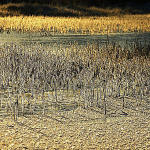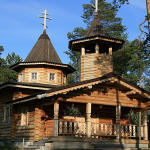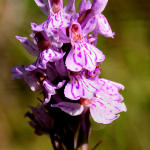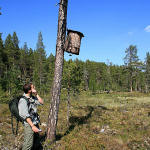

Home
Area
Vätsäri
Övre Pasvik
Pasvik Zapovednik
Nature
Geology
Climate
Water system
Flora
Fauna
Culture
Population
Religion
Sources of livelihood
Old ways of life
Time of industrialism
History
Stone Age
Early Metal Age
Late Metal Age
Middle Ages
Towards modern times
Timeline
Cooperation
Nature monitoring
Nature tourism
Publications
Contacts
Visit Pasvik-Inari
Guidelines
Regulations
News
Links
Principles of sustainable nature tourism in
Pasvik-Inari
The partners in Pasvik-Inari cooperation agreed in 2006 on a number of principles of sustainable nature tourism. These principles are promoted in all activities within the trilateral cooperation. The principles were introduced to the local nature tourism operators in a nature tourism seminar in Svanhovd in 2007 and were found practical by the participants.
1. Nature values are preserved, and tourism activities promote nature protection
- Nature is an important reason for travel
- Visitors are informed about nature and nature conservation
- Tourism does not disturb nature - all areas are not suitable for tourism
- Visitor groups are small and trails are used whenever possible
- Tourism is channelled with the help of information and by placing of facilities
- Facilities are constructed without harm to the environment and areas of natural beauty are left in their natural state
- Degradation of nature and other impacts are monitored and, if necessary, measures are undertaken
- Marketing supports sustainable nature conservation
- Minimum loading of the environment is assured
- The objective is rubbish-free hiking, with minimum stress on environment
- Transportation systems with minimised impact on environment are given preference
- Motorised transportation is guided to the most suitable areas
- Firewood is used frugally
- Emissions into water and air are minimised, and renewable energy sources are favoured
- Visitors are provided with information about best practises for environmentally friendly behaviour
- Local culture is met open-mindedly
- Local people are involved in planning and implementing new activities
- Sensitivity, rights and wishes of indigenous people are respected
- Whenever possible, cultural heritage is included in information and experiences are offered
- Historical and scientific sites are respected, and damage of important cultural heritage sites are prevented
- Local guides familiar with culture are used
- Products and services of local entrepreneurs are always used when possible
- Local people are employed when possible, but also people and ideas from outside the region are seen as a potential
- Involvement and partnerships with indigenous people and local communities are sought and supported
- Information is available beforehand
- Knowledge is easy to find and in an interesting form and content
- Trained guides have knowledge about nature, culture, history, and inspire visitors
- Possibilities are created for feedback to enable participation in the management of the area
- Information is reliable
- Essential safety rules and regulations are followed
- Training is organised in co-operation with entrepreneurs
- Planning is open and interactive, and opinions of the visitors are appreciated
- Priority is given to those wanting to commit themselves to these principles of sustainable nature tourism



